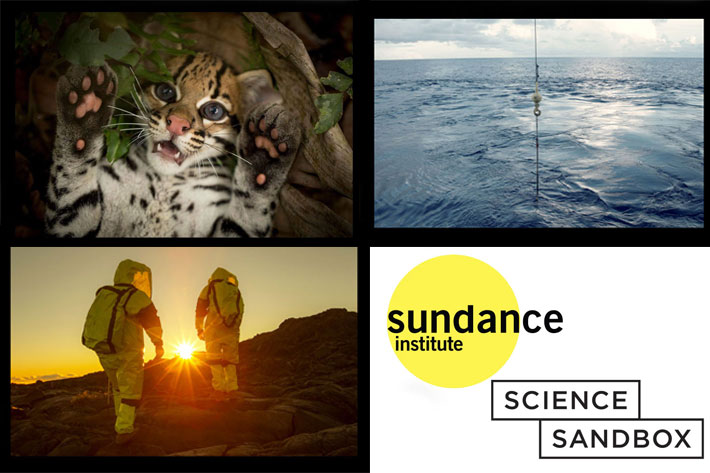
Nine science-focused independent filmmakers are the award recipients for 2019 in the Sundance and Science Sandbox initiative, following the initiative’s successful inaugural year, which had five awards.
Back in 2018 Science Sandbox and the Sundance Institute announced the inaugural award recipients of the Science Sandbox Nonfiction Initiative. The initiative aims to elevate the voices of independent artists working at the intersection of science and nonfiction storytelling, as well as to encourage critical thinking, promote educated discourse and highlight the overlap of science and art.
The program, administered by the Sundance Institute, aims to provide resources for emerging artists making science nonfiction films and to help them connect their works with audiences across the world. The five projects and filmmakers selected then received support from the Sundance Institute to aid in any creative, financial or production issues encountered.
Nine award recipients in 2019
The Science Sandbox Nonfiction Initiative is back in 2019 and is growing. The Sundance Institute, continuing its partnership with Science Sandbox, has announced nine new award recipients for 2019. These science-focused independent filmmakers will receive creative, financial, and production support, in addition to access to the Sundance and Science Sandbox communities through networking events.
The initiative’s successful inaugural year explain why the number of projects supported has increased from five to nine, a cohort co-curated by the Institute and the Simons Foundation. The selected projects will receive non-recoupable grants and access to Sundance Institute’s year round continuum of support, which can help address creative, financial and production issues. In addition to this tailored project support, the grantees will receive opportunities for engagement events where they can connect with Sundance’s network of alumni and creative advisors and Science Sandbox’s roster of renowned scientists, as well as enthusiastic audiences.
Scientific ideas, inspiring narratives
Tabitha Jackson, Sundance Institute Documentary Film Fund and Program Director, said, “The filmmaker and the scientist are both engaged in trying to understand the world. They use different methodologies but both share a sense of wonder; both seek to ask the right question and both need to be supported to carry out their work as part of an informed and progressive society. We are delighted by the breadth of cinematic language and the range of scientific endeavors that are represented in this partnership, which gets stronger every year.”
The nine current recipients of the grants are Edge of Time, directed by Stephanie Spray; The Eyes to See, directed by Ian Cheney and Sharon Shattuck; Fathom, directed by Drew Xanthopoulos; The Last Kidney Donor, directed by Penny Lane; Missing Microbes, directed by Steven Lawrence and Sarah Schenck; Raising Khan, directed by Trevor Frost and Melissa Lesh; Red Heaven, directed by Lauren DeFilippo and Katherine Gorringe; Untitled Black Hole Film, directed by Peter Galison; and Users, directed by Natalia Alamda.
Greg Boustead, Director of Science Sandbox, said “There’s no one way to tell stories about science. This cohort of projects demonstrates the myriad ways scientific ideas can be transformed into relatable and inspiring narratives — whether through emotion, persuasion, edification, or provocation.”
